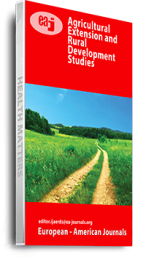The study assessed the factors militating against pesticides use in Akwa Ibom State, Nigeria. Primary data were collected with the aid of a structured questionnaire and responses recorded during focus group discussion sessions. A sample size of 240 farmers were randomly selected for the study. About 55.8% of the farmers were male, majority (50.8%) were aged range between 21 – 40 years and 65.4% were married. Majority (56.7%) had tertiary education, most of them (49.6%) take farming as their primary occupation while 65.4% earned monthly income around N50,000. Most of the respondents (92.1%) were Christian, (56.3%) had farming experience between 1 to 10 years. The empirical findings revealed that age, educational status, farming experience, farm size of the respondents as well as their access to extension services, access to modern farm inputs and access to credit facilities statistically are significant factors that influence pesticide use by farmers in Akwa Ibom State. Therefore, the study recommended that extension agent should have contact with farmers at all times to enable them acquire knowledge of various methods of controlling pest and diseases through the use of pesticides.
Keywords: Akwa Ibom State, Farmers, Pesticide, Production, crops

